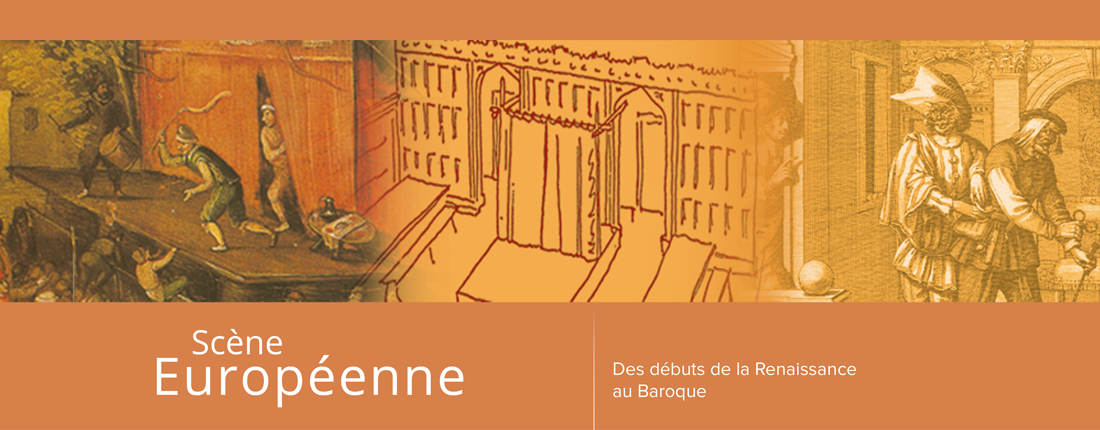
Mankind Justified by Faith: Tragicomedy (Tragiqve comedie francoise de l'homme iustifié par Foy)
by Henri de Barran (1554)
(adapted and translated into English verse by Richard Hillman)
Cast (in order of appearance)
THE LAW: Elisabeth Dutton
THE SPIRIT OF FEAR: M. A. Katritzky
SATAN: Bob Godfrey
SIN: Zoé Bennett
DEATH: Molly O’Brien Castro
CONCUPISCENCE: Adrienne Janus
MANKIND: Richard Hillman
RABBI (Preacher of the Law): Peter Happé
PAUL (Preacher of the Evangel): John McGavin
FAITH: Sarah Carpenter
GRACE: Janice Godfrey
Synopsis: Although disparaging the Roman Catholic church on the grounds of both doctrine and practice, this moral allegory, published in Geneva, privileges instruction over polemic. It employs the traditional morality-play device of a figure representing Mankind, who, however, finds himself torn less between virtue and vice (the usual situation) than between alternative solutions to his inevitably sinful state. A representative of the Old Law (“Rabbi”), who at first prevails, advocates outward conformity and good works; he is opposed by Paul, who preaches the New Law’s (and Luther’s) message of salvation through faith alone.This proves the means of redeeming Mankind from Satan and his allies.
Barran’s self-styled “tragicomedy” is as obscure as its author, about whom almost nothing is known, and there is no evidence that it was ever performed, although it possesses highly theatrical qualities. In any case, the work survives in at least five copies (a relatively high number), while links with several Tudor morality plays – and arguably, indeed, with the late Elizabethan public theatre – make probable its circulation within English ecclesiastic and theatrical milieux.
Résumé: Bien que dénigrant l’église catholique romaine pour sa doctrine ainsi que pour ses pratiques, cette allégorie dramatique, publiée à Genève, privilégie l’instruction à la polémique. Si elle se sert du dispositif traditionnel des moralités, un personnage (« l’Homme ») représentant toute l’humanité, en revanche ce dernier se trouve tiraillé moins entre la vertu et le vice (la situation normale), qu’entre deux remèdes proposés à son état inévitable de pécheur. Un prêcheur de la Vieille Loi (« Rabbi »), qui d’abord prend le dessus, favorise un obéissance superficielle et les bonnes œuvres. Il est opposé par Paul, qui prêche le message de la Nouvelle Loi (et de Luther) selon lequel la foi seule amène au salut. C’est ainsi que l’Homme est finalement délivré du pouvoir de Satan et de ses suppôts.
L’autoproclamée « tragi-comédie » de Henri de Barran est autant obscure que son auteur, sur qui on ne sait pas beaucoup, et rien n’indique qu’elle a jamais été représentée, malgré ses qualités hautement théâtrales. Néanmoins, au moins cinq exemplaires de l’œuvre subsistent (un nombre relativement élevé), alors que des liens avec quelques moralités Tudor, voire avec le théâtre public élisabéthain, suggère qu’elle était connue en Angleterre dans les milieux ecclésiastiques et théâtraux.
Remerciements particuliers: aux comédiens ; aux personnels du CESR et du Département de Musicologie pour leur aide logistique ; à Céline Rousseau pour la préparation de cette vidéo.